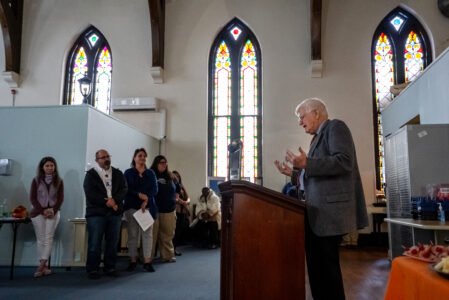City council approves tax-break plan to encourage development
Williamsport City Council recently approved the city’s streamlined Local Economic Revitalization Tax Assistance program, or LERTA, for residential, commercial, and industrial properties. Scott Williams, city planner and deputy director of the department of community and economic development, had a brief discussion after the second reading of the simplified applications, eliminating the residential application fee and requiring forms be filed with building permits instead of at occupancy.
LERTA phases in tax increases from property improvements over 10 years, with city officials projecting an additional $1.5 million to the residential tax base and $3.5 million to the commercial base. The county still offers only commercial LERTA after ending its residential program.
Williams asked the council if there were remaining questions from the first reading.
Councilwoman Liz Miele, chair of the finance committee, noted how while there were not any follow up questions, she said what she heard from others on council that if the city moves forward on another commercial LERTA in 2026, council would like to see the zones be a little bit more targeted than the rest of the city.
“With an eye toward encouraging development, obviously, but encouraging it in certain corridors that we want to see developed most strongly,” she said.
With that said, the city has one year left, so she said she did not see any issue with including the final segment but be more fully considered.
Williams said he was hoping that would be mentioned.
“That is something I fully 100 % agree with,” Williams said, speaking to the rationale of adding census tracts.
The city was following the protocols of how to define the LERTA for commercial properties before, he said. “It was sort of the quickest way to add in the commercially zoned property in the city.”
A lot of the issue relates to underdeveloped and undeveloped properties, he said, adding there is currently property in the commercial zoned district that the city would like to see developed.
Currently, the department is lacking the software tools to do the kind of granular analysis that Miele and council referred to as implementing in the next LERTA on commercial properties.
“I would say with any future LERTA ordinance, I would want to look at things on a corridor basis,”Williams said.
Instead of a zone or a tract to look at a range of addresses on a particular street, he said, as an example of possible change.
The software tools to accomplish this have been put into the budget for next year, he said.
“To look at land use patterns, pulling county property records, and look at what we have that might be vacant, undeveloped property in certain areas,” he said.
They may be in zones that the city can include in a future LERTA.


